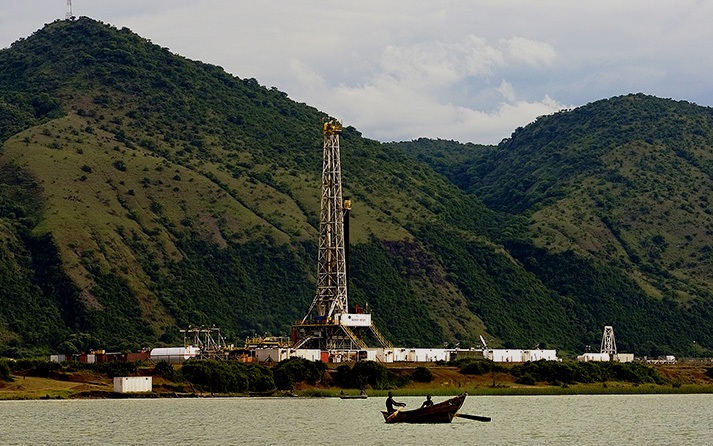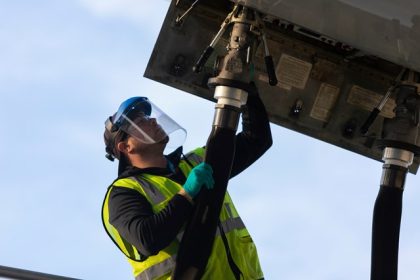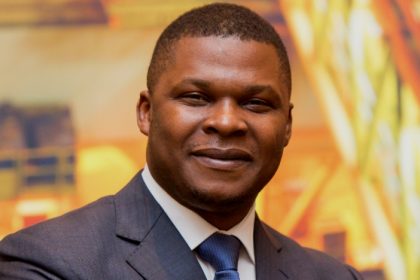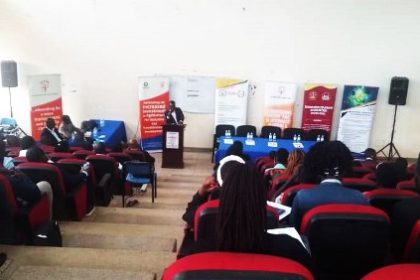Resistance to East African Pipeline project now ties in World Bank
 The complaint states that the planned heated pipeline and proposed refinery, along with the associated development of oil fields on the shores of Lake Albert, will impact over 120,000 people in Uganda and Tanzania, destroy critical biodiversity and wetlands.
The complaint states that the planned heated pipeline and proposed refinery, along with the associated development of oil fields on the shores of Lake Albert, will impact over 120,000 people in Uganda and Tanzania, destroy critical biodiversity and wetlands.
Last week, three organizations that claim to represent thousands of people in Uganda, filed a complaint against the World Bank for indirectly backing what they term as one of the world’s largest and riskiest oil developments.
This comes when the Parliamentary Sectoral Committee on Environment and Natural Resources is considering the East African Crude Oil Pipeline (Special Provisions) Bill 2021. The committee is inviting public views as the national legislature moves to sanction the inter-government agreements between Tanzania and Uganda over the construction and operation of the pipeline.
According to the complaint, the planned heated pipeline (EACOP) and proposed refinery, along with the associated development of oil fields on the shores of Lake Albert, will impact over 120,000 people in Uganda and Tanzania, destroy critical biodiversity and wetlands, and significantly contribute to the global climate crisis, the complaint alleges. The projects are being developed by oil majors Total Energies of France and CNOOC of China.
In recent years, the World Bank has been facing pressure to address the shortcomings in its no-oil policy. This is not the first time concerns have been raised over the pipeline, but despite disclosure of environmental impact assessment reports, queries are still being voiced.
The complaint details how the International Finance Corporation (IFC), part of the World Bank Group, has supported the constellation of projects through a $35 million investment in Britam Holdings, a pan-African insurer.
Britam has said that it will provide insurance coverage for the EACOP and refinery, which are both necessary for drilling in the Lake Albert oil fields – a new global frontier in oil extraction. The IFC is Britam’s fifth-largest shareholder and holds a seat on its board.
The complaint was filed with the IFC’s independent watchdog, the Compliance Advisor Ombudsman. Two grassroots Ugandan associations – whose names have been kept confidential due to fear of reprisals – and Inclusive Development International (IDI) filed the complaint on behalf of affected people. The NGO lobbies against multi-billion dollar mega projects that it says can do potential harm to communities, the environment and lends support to national civil society groups that question the validity of these investments.
The complainants are calling for a compliance investigation into whether the IFC breached its Sustainability Policy through its indirect backing of the oil projects. The 33-page complaint details the manifold ways in which the projects are fundamentally incompatible with the IFC’s Environmental and Social Performance Standards.
Coleen Scott, Legal and Policy Associate at IDA said, “These oil projects are the antithesis of sustainable development by their very nature. No project that entails drilling 130 oil wells in a national park, acquiring the land of over 120,000 people, and building the world’s longest heated oil pipeline through numerous protected areas could possibly satisfy the IFC’s Performance Standards.”
The complaint is the first filed to the Compliance Advisor Ombudsman concerning insurance coverage provided by an IFC client. It comes amid growing pressure on insurers to stop backing fossil fuel projects.
The EACOP, which would be the world’s longest heated oil pipeline if it is realized, carries significant risk and cannot be built without multiple layers of insurance coverage. To date, the global insurers Swiss Re, AXA and Zurich have committed for the project.
The World Bank Group pledged it would no longer fund upstream oil projects beginning in 2019. Left unsaid was whether this commitment applies to IFC’s financial intermediaries like Britam, which account for more than half of the IFC’s $75 billion portfolio.
According to the IDI, this apparent loophole has significant ramifications for the world’s climate. In May, the International Energy Agency published a comprehensive roadmap for the energy sector to reduce carbon dioxide emissions to net-zero by 2050 in order to give the world a chance of limiting warming to 1.5°C and staving off climate disaster. The IEA said that in order to achieve this goal, there should be no new fossil fuel supply projects, including new oil fields.
David Pred, the IDI Executive Director said, “The EACOP and Lake Albert oil projects would block the IEA’s net zero pathway before the ink is even dry on their report. It is reprehensible that the world’s premier development bank would be involved in a project directly or indirectly that would have such catastrophic consequences for the planet.”
If built, the oil transported from the EACOP is expected to generate at least 34 million metric tons of carbon emissions per year, significantly more than the current combined emissions of Uganda and Tanzania, through which the planned 1,443km pipeline will traverse.

 African Heads of state head to South Korea next week for Summit talks
African Heads of state head to South Korea next week for Summit talks
 Boeing’s record SAF purchase supports airlines decarbonisation efforts
Boeing’s record SAF purchase supports airlines decarbonisation efforts
 With eyes on oil and gas, France pledges USD 3 billion investment in Uganda
With eyes on oil and gas, France pledges USD 3 billion investment in Uganda
 Rolls-Royce basks in expanding African footprint
Rolls-Royce basks in expanding African footprint
 Africans must resist being bulldozed in energy transition timetable debate
Africans must resist being bulldozed in energy transition timetable debate
 CSBAG roots for increased funding for renewable energy
CSBAG roots for increased funding for renewable energy
